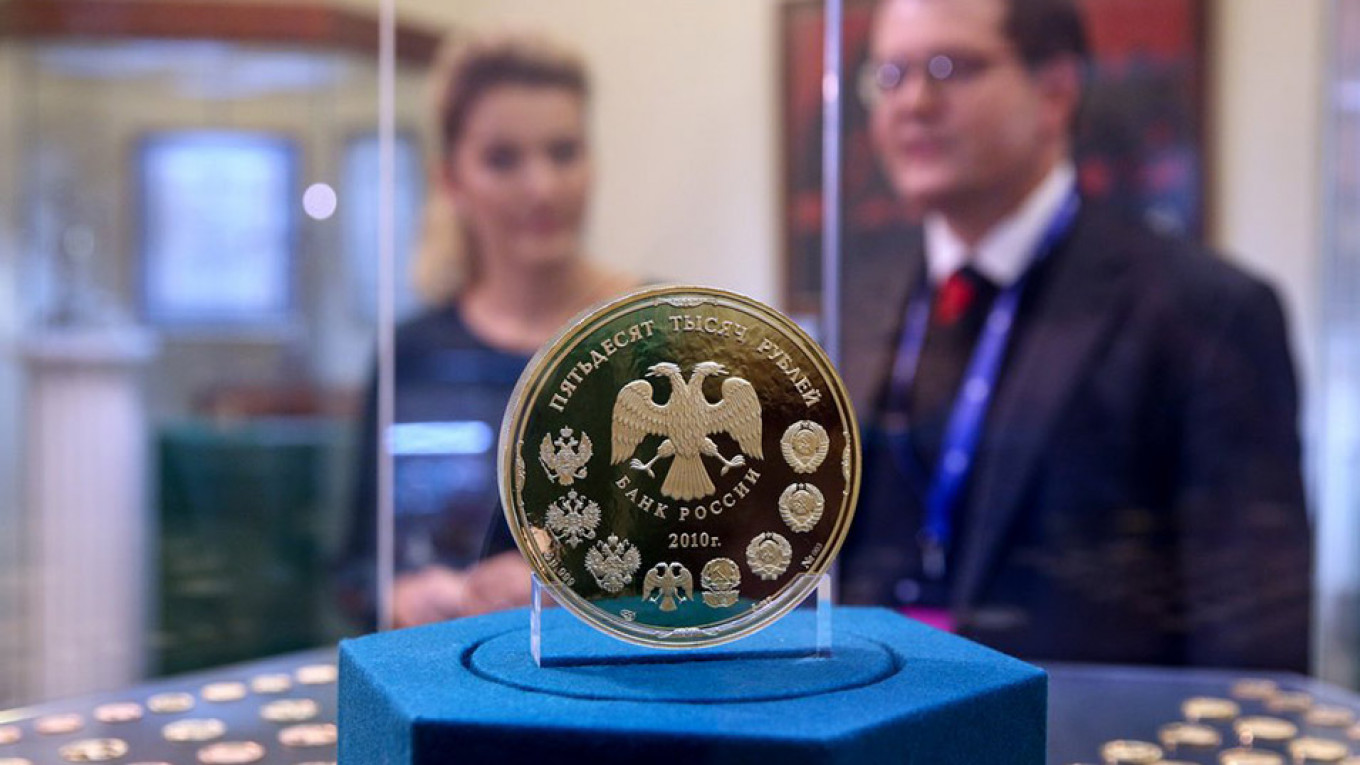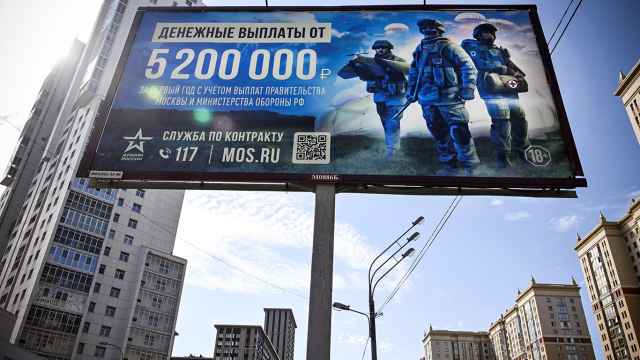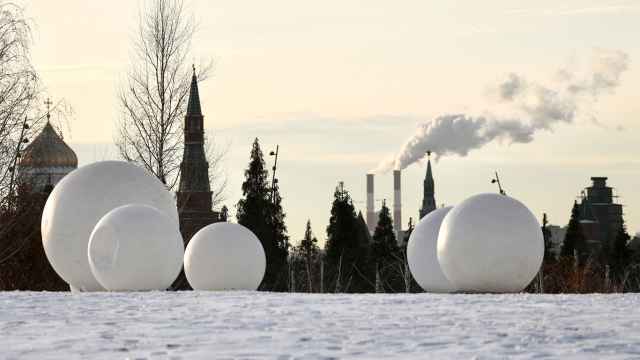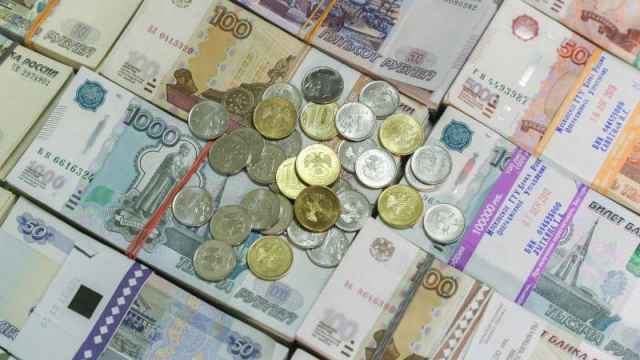The main debate in Russia’s economic bloc right now is how best to spend the super-profits from oil exports that are building up in the national wealth fund (NWF).
In accordance with budget rules, oil revenues in excess of around $40 per barrel are channeled into the fund, and the threshold of 7% of GDP — above which the law allows the treasure chest to be opened up — will be passed by the end of this year.
That means that in 2020, the treasury will have almost two trillion rubles ($31 billion) in its coffers that hasn’t been allocated for anything, and in 2021, if oil prices have not decreased drastically, more than 4 trillion rubles, according to calculations by the Finance Ministry.
It turns out that a lot of money is even more of a disaster for the Russian economy than a lack of money. Federal budget spending is planned by the government through 2022 for the National Projects (a road map for Russia’s strategic development), social welfare, defense, and security. Because of this, for state capitalists, the surplus in the NWF is essentially becoming the only potential source of large tranches of state funding for private projects.
Since the original function of the NWF was to ensure stability in the pensions system — a function that has only existed on paper since 2018, when oil revenues from the reserve fund were used to cover the budget deficit, and the rest of the fund was put into the NWF — it could only be invested in conservative financial instruments: securities issued by bodies with a high credit rating, other countries’ bonds, and bank deposits (the list of banks is determined by the government, and is not long).
The world’s biggest sovereign wealth fund — Norway’s Government Pension Fund Global — mainly invests abroad to protect the Norwegian economy from oil price fluctuations. An analogous approach was suggested in Russia: to expand the range of the NWF’s investment instruments to foreign assets, and ban investment of the fund’s money in Russian projects. This approach has the support of the Central Bank, as well as some Finance Ministry officials.
The Economic Development Ministry has suggested stimulating foreign demand for Russian non-oil and gas goods and services through export credits, for example, by giving Egypt a $3 billion state loan for the construction of an atomic power station, or investing in the construction of industrial parks in other countries where Russian equipment would be installed.
The advantages of this kind of investment are questionable, however, due to the slowdown of the global economy, decreased exports, and the overall fall in global demand.
The Central Bank also believes that investing the NWF in more risky instruments outside of Russia will make it possible to maintain the effectiveness of the budget rule that is making it possible to wean the Russian economy off its dependence on hydrocarbon exports. Incidentally, the Central Bank would be far happier if the fund wasn’t touched at all for now — especially since spending income over 7% of GDP is merely the government’s right, and in no way an obligation.
How the NWF surplus will be spent is up to the cabinet, which now has state capitalists lining up at its door — hence the Central Bank’s wish to invest abroad: it fears that spending the money inside the country will spur inflation, impact on fluctuations in the ruble rate, and lead to a procyclical budget policy. In addition, government decisions are, as a rule, made behind the scenes, meaning that the funds could end up in the hands of a chosen few.
This, indeed, is what appears to be happening so far.
“It is impossible not to invest in our economy: Russia has extremely interesting, really excellent projects,” Finance Minister Anton Siluanov said at the Moscow Financial Forum this month. He had previously spoken in favor of saving the funds.
One of those “really excellent projects” supported by the minister is the construction of a gigantic LNG plant in Ust-Luga for processing and liquefying natural gas by Gazprom and the company RusGazDobycha, which previously belonged to a firm owned by Arkady Rotenberg, a good friend of President Vladimir Putin.
The project has an estimated cost of 2.3 trillion rubles, and as long as they remain under Western sanctions, Gazprom CEO Alexei Miller and Rotenberg’s partner will not be able to obtain the funds from anywhere other than the state. The companies appealed to VEB, Russia’s development bank, which in turn went to the government for money. VEB’s supervisory board has approved the allocation of about 30 billion rubles for planning documentation, and will return to the issue of the main financing later on, according to state officials.
Another high-profile contender for the NWF cash is gas producer Novatek’s Arctic LNG project, valued at 1.3 trillion rubles. Nearly a quarter of the company’s shares belong to another of Putin’s friends who is under Western sanctions, Gennady Timchenko.
VEB’s chairman, Igor Shuvalov, has his own vision of how best to spend the NWF: by replacing public transport in a dozen Russian cities at a cost of 340 billion rubles during the first stage, and in 1,000 towns and cities at a cost of 2.1 trillion rubles during the second stage.
Others laying claim to the NWF surplus include Rosneft CEO Igor Sechin for the oil giant’s Arctic projects, and Rostec state corporation head Sergei Chemezov for the MS-21 mid-range aircraft and various import substitution projects.
According to Siluanov, the government has agreed on the criteria for allocating funding from the NWF, but they have not been made public, and no government decrees on this subject have been passed.
Spending through budget channels is a priori more transparent than spending via government decrees: in previous years, the government did a lot to make budget spending more transparent. Then, to get around this transparency, an entire network of proxies sprang up: quasi-state structures to which the state partially delegates its functions.
Relations between the entities of the proxy economy consist of agreements and understandings, and are far less dependent on budget legislation and procedures. Whether these agreements and understandings will be retained after 2024, when Putin is obliged by the constitution to step down as president, none of those involved know.
In these circumstances, the key question is not who will eventually get their hands on the NWF surplus, but what mechanism will be used to distribute those funds.
If the debate was only about amounts, it could easily be solved by increasing the cut-off price above which oil profits are diverted to the NWF, or by introducing a floating cut-off price dependent on oil price forecasts, and everyone would be happy. In that scenario, the budget would have additional money to fund projects, and the mechanisms for allocating budget funds are clear: the project is presented to all those involved in the budgeting process, and then the money is released.
That option, however, doesn’t suit the state capitalists. That would mean their projects competing with schools, kindergartens, hospitals, bridges, and roads for public use, while the main aim of the state capitalists is to maximize profits.
Spending the NWF via government decrees is, therefore, the last chance for them to get large sums of money for practically nothing, without drawn-out approval procedures, and without looking beyond 2024.
Meanwhile, it is the government that will have to bear the political risks of dispensing the NWF to the chosen few in full view of a society that is irate and becoming poorer for the fifth year in a row.
This article was originally published by Carnegie.
A Message from The Moscow Times:
Dear readers,
We are facing unprecedented challenges. Russia's Prosecutor General's Office has designated The Moscow Times as an "undesirable" organization, criminalizing our work and putting our staff at risk of prosecution. This follows our earlier unjust labeling as a "foreign agent."
These actions are direct attempts to silence independent journalism in Russia. The authorities claim our work "discredits the decisions of the Russian leadership." We see things differently: we strive to provide accurate, unbiased reporting on Russia.
We, the journalists of The Moscow Times, refuse to be silenced. But to continue our work, we need your help.
Your support, no matter how small, makes a world of difference. If you can, please support us monthly starting from just $2. It's quick to set up, and every contribution makes a significant impact.
By supporting The Moscow Times, you're defending open, independent journalism in the face of repression. Thank you for standing with us.
Remind me later.








